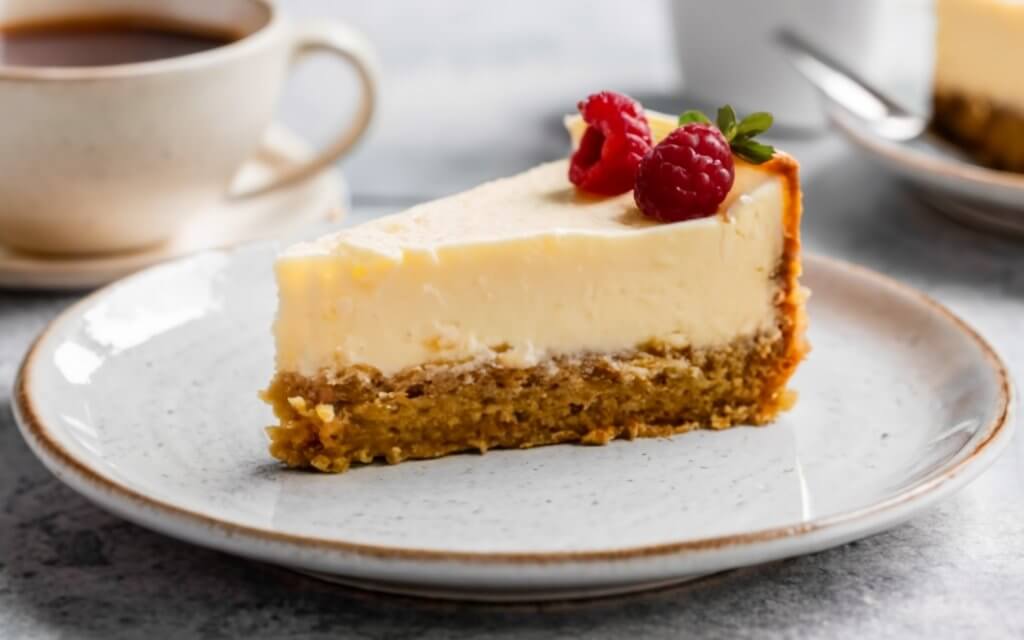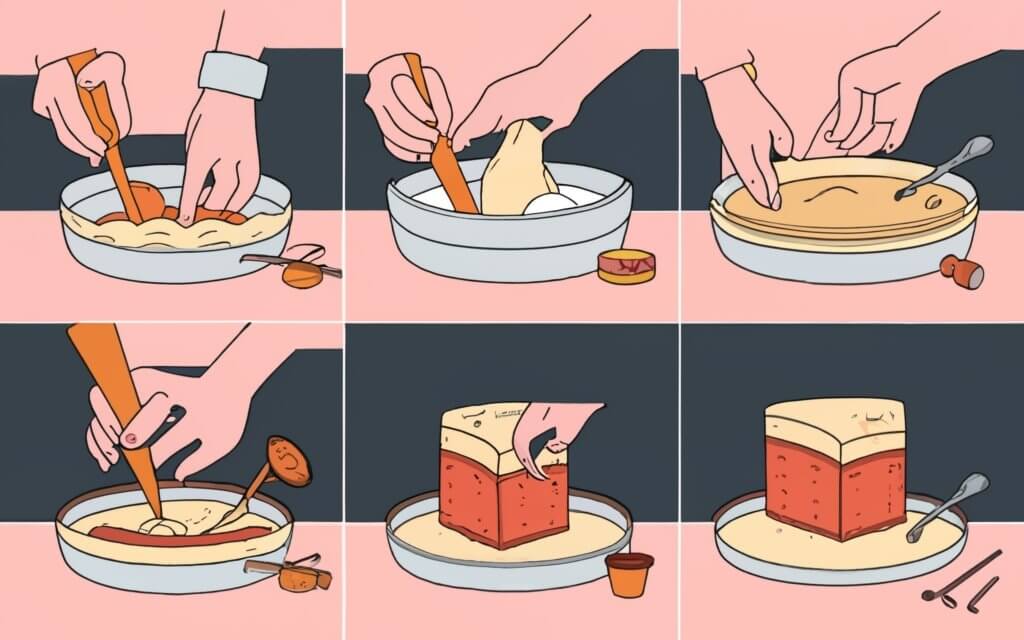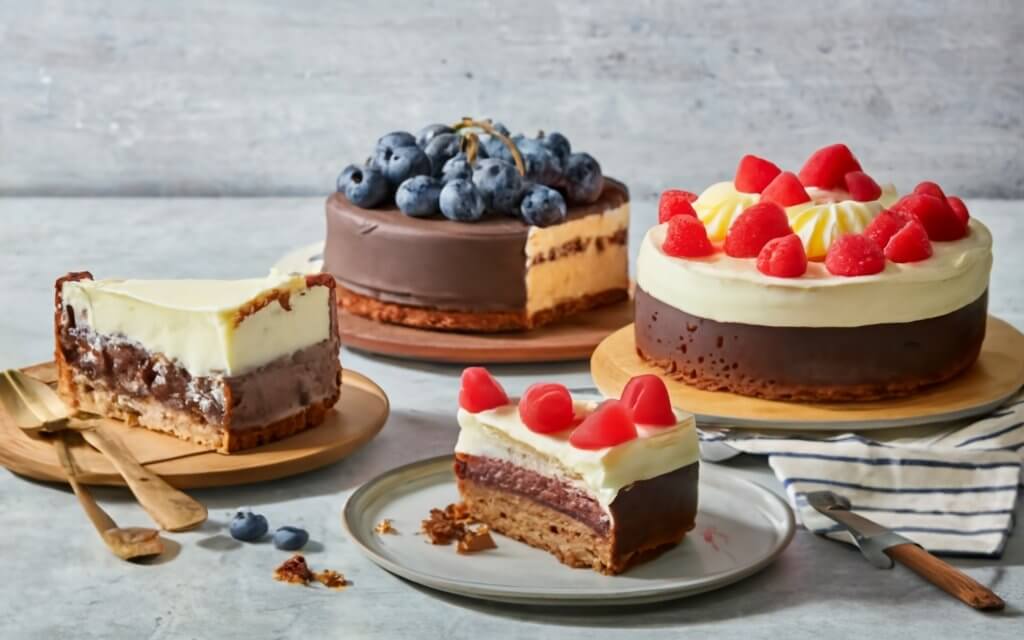Introduction to Philadelphia Cream Cheese and Cheesecake Filling
The Legacy of Philadelphia Cream Cheese
Philadelphia Cream Cheese has been a beloved ingredient in American kitchens for over a century. Its rich, smooth texture and versatile nature make it a go-to for both savory and sweet dishes. But it’s in the realm of desserts, particularly cheesecakes, where it truly shines. The brand’s history is intertwined with the evolution of cheesecake itself, a dessert that has undergone numerous transformations to become the delicacy we know today.
A Brief History of Philadelphia Cream Cheese
The story of Philadelphia Cream Cheese begins in the late 19th century. Despite its name, it was actually developed in New York and has since become synonymous with quality cream cheese. Over the years, it has evolved, adapting to changing tastes and culinary trends, yet always maintaining its core identity as a premium ingredient for a multitude of recipes.
To delve deeper into the historical journey of cream cheese, visit History of Cream Cheese
Philadelphia Cream Cheese in Modern Cuisine
Fast forward to today, and Philadelphia Cream Cheese continues to be a key player in modern cuisine. Its application extends beyond traditional cheesecakes, finding its way into innovative desserts, dips, spreads, and even main courses. The brand has adapted to contemporary dietary preferences, offering a range of products that cater to different needs, including lighter versions and flavored varieties.
In this exploration of Philadelphia Cream Cheese and its role in cheesecake making, we’ll uncover whether this iconic brand still reigns supreme in the cheesecake world and how it continues to influence modern culinary practices. Stay tuned as we slice into the delicious details in the next part of our article!
The Current State of Philadelphia Cream Cheese Cheesecake Filling
Does Philadelphia Still Make Cheesecake Filling?
The burning question on every cheesecake lover’s mind is whether Philadelphia Cream Cheese still produces its famed cheesecake filling. The answer is a delightful yes! Philadelphia continues to offer its classic cream cheese, a key ingredient in many cheesecake recipes. However, the landscape of cheesecake fillings has evolved, with an array of options now available to suit various tastes and dietary preferences.
Recent Changes in Product Lines
In recent years, Philadelphia has expanded its product line, introducing innovations that cater to the modern consumer. This includes a variety of flavors and textures, ensuring that there’s something for every palate. From the rich and indulgent to the light and airy, these new offerings reflect a shift in consumer preferences towards more diverse and sometimes healthier options.
Consumer Demand and Market Trends
The demand for Philadelphia Cream Cheese in cheesecak
e making remains strong, but it’s not just about the traditional recipes anymore. Consumers are increasingly looking for convenience, variety, and dietary adaptations. Philadelphia has responded to these trends by offering products that are not only delicious but also align with contemporary eating habits. This includes options that are lower in fat, have no added preservatives, and even cater to those seeking plant-based alternatives.
In this ever-evolving culinary landscape, Philadelphia Cream Cheese continues to be a beloved ingredient for cheesecake enthusiasts. Its ability to adapt and innovate ensures that it remains a staple in both classic and modern recipes. As we delve deeper into the world of cheesecakes and cream cheese, we’ll explore how Philadelphia’s products are used in crafting the perfect cheesecake, along with tips from professional chefs.
Exploring Cheesecake Recipes Using Philadelphia Cream Cheese
Crafting the Perfect Cheesecake with Philadelphia
Creating the perfect cheesecake is akin to conducting a symphony – it requires precision, patience, and the best ingredients. At the heart of this culinary masterpiece is, of course, Philadelphia Cream Cheese. Known for its smooth, rich texture and balanced flavor, it provides the ideal foundation for a classic cheesecake.
Classic Cheesecake Recipes
The classic cheesecake recipe is simple yet elegant. It typically involves a crust made from graham crackers or cookies, a filling of Philadelphia Cream Cheese blended with sugar, eggs, and vanilla, and a topping of your choice. The key to perfection lies in the quality of cream cheese and the baking technique. Philadelphia’s cream cheese, with its creamy consistency and rich taste, ensures a smooth and velvety filling, every baker’s dream.
Innovative Cheesecake Ideas
While tradition has its charm, innovation keeps things exciting. Philadelphia Cream Cheese’s versatility allows for a plethora of creative cheesecake variations. Think beyond the classic – incorporate flavors like salted caramel, lemon zest, or even matcha. Experiment with layers, textures, and toppings. The possibilities are endless, and Philadelphia Cream Cheese is your canvas.
For those interested in exploring vegan alternatives for cheesecake, discover a variety of recipes at Vegan Cheesecake Recipes.
Tips from Professional Chefs
Professional chefs have long favored Philadelphia Cream Cheese for its consistent quality. Here are some pro tips for making an outstanding cheesecake:
- Room Temperature Ingredients: Ensure your cream cheese and eggs are at room temperature to achieve a smooth batter.
- Gentle Mixing: Overbeating the batter can incorporate too much air, leading to cracks. Mix gently until just combined.
- Water Bath: Baking your cheesecake in a water bath helps maintain even temperature and moisture, preventing cracks.
- Cooling: Allow your cheesecake to cool gradually in the oven with the door slightly ajar, then transfer to a wire rack. This gradual cooling helps prevent sinking and cracking.
In the next part of our creamy exploration, we’ll delve into the world of alternatives and substitutes for Philadelphia Cream Cheese in cheesecakes. Whether you’re looking for a lighter option or catering to dietary restrictions, we’ve got you covered.
Alternatives and Substitutes
Alternatives to Philadelphia Cream Cheese in Cheesecakes
While Philadelphia Cream Cheese is a staple in traditional cheesecake recipes, there are times when an alternative is needed. This could be due to dietary restrictions, such as lactose intolerance, or a preference for a lighter version of the classic dessert. Fortunately, there are several substitutes that can mimic the texture and taste of traditional cream cheese.
Using Different Types of Cream Cheese
One straightforward substitution is using different types of cream cheese. Options like Neufchâtel offer a lower-fat alternative while maintaining a similar flavor and texture profile. For those looking for non-dairy options, there are several plant-based cream cheeses available that use ingredients like cashews or coconut oil to replicate the creamy texture of traditional cream cheese.
Non-Dairy and Vegan Options
For vegans or those with dairy allergies, there are several non-dairy alternatives that can be used in place of Philadelphia Cream Cheese. These alternatives are often made from nuts, soy, or other plant-based ingredients. They can provide a similar creamy texture, and when combined with the right flavors, can make a delicious vegan cheesecake. It’s important to note that the texture and flavor may vary slightly from traditional cheesecake, but these alternatives offer a way for more people to enjoy this classic dessert.
In the next part of our article, we’ll dive into consumer insights and reviews, exploring what people really think about Philadelphia Cream Cheese and its alternatives in cheesecake recipes. This will provide a well-rounded view of how this iconic ingredient is perceived and used in kitchens around the world.
Consumer Insights and Reviews
What Do Consumers Say?
Philadelphia Cream Cheese has long been a household name, but what do real users think about it, especially when it comes to cheesecake making? Consumer reviews and feedback provide invaluable insights into the product’s performance, taste, and versatility.
Reviews and Feedback on Philadelphia Cream Cheese
From seasoned bakers to occasional dessert makers, the reviews of Philadelphia Cream Cheese often highlight its consistent quality, rich flavor, and smooth texture. Many attest to its superiority in creating the classic cheesecake texture – creamy, dense, yet light. However, some consumers also express their wish for more variety in terms of flavors and health-conscious options, reflecting the evolving preferences of modern consumers.
Comparing Brands and Preferences
When it comes to alternatives, the opinions are as varied as the options available. Some consumers find great success with lower-fat or non-dairy substitutes, praising their ability to mimic the classic cheesecake texture and taste. Others remain loyal to the original, asserting that nothing beats the richness of traditional Philadelphia Cream Cheese in a cheesecake recipe. This diversity in preferences underscores the importance of having options in the market, catering to different dietary needs and taste buds.
In the next part of our article, we’ll delve into the Frequently Asked Questions (FAQs) surrounding Philadelphia Cream Cheese and cheesecake making. This section aims to address common queries and misconceptions, providing readers with clear, concise answers.
Frequently Asked Questions
Frequently Asked Questions
Cheesecake making, especially with an ingredient as iconic as Philadelphia Cream Cheese, often comes with a set of questions. Here, we aim to provide answers to some of the most common inquiries, helping you perfect your cheesecake creations.
- Can Philadelphia cheese spread be used instead of a block of cream cheese in a cheesecake recipe?
- You can use Philadelphia cheese spread in a cheesecake, but remember, it has a different texture and moisture content than traditional block cream cheese. This difference could alter your cheesecake’s consistency and firmness. For optimal results, it’s best to use the original block cream cheese.
- What is a good substitute for cream cheese in a cheesecake recipe?
- If you’re looking for a substitute for cream cheese, options like Neufchâtel cheese, mascarpone, or even Greek yogurt can be used. For a non-dairy alternative, cashew-based or coconut-based vegan cream cheeses are excellent choices. Each substitute will bring a unique flavor and texture to your cheesecake.
- What is the recipe for cheesecake that was on the back of the Philadelphia cream cheese package?
- The classic recipe typically includes a crust made from graham crackers, a filling of Philadelphia Cream Cheese mixed with sugar, eggs, and vanilla, and a topping of your choice. The exact proportions and baking instructions can vary, but this basic formula has been a favorite for generations.
Conclusion and Future Trends
The Future of Cheesecake and Cream Cheese
The world of culinary arts is ever-evolving, and cheesecake is no exception. As we look ahead, it’s clear that innovation and adaptation will be key. Philadelphia Cream Cheese, with its rich history and proven versatility, is likely to continue as a fundamental ingredient, while also adapting to new trends and dietary needs.
Upcoming Trends in Desserts
The future of desserts, including cheesecakes, is set to become more inclusive and diverse. In the future, we can certainly expect to see a significant rise in health-conscious options, such as low-sugar, low-fat, and high-protein variations. Furthermore, vegan and plant-based alternatives will also gain more prominence, thereby catering to an even wider range of dietary preferences.
Philadelphia Cream Cheese’s Role in Future Culinary Developments
Philadelphia Cream Cheese, a brand synonymous with quality and tradition, is poised to embrace these changes.By balancing its classic appeal with innovative products, Philadelphia Cream Cheese will undoubtedly continue to be a staple in both traditional and modern recipes. Furthermore, the brand’s remarkable ability to adapt, while still maintaining its core values, indeed promises a future where everyone, without exception, can enjoy the creamy delight of cheesecake. Consequently, regardless of their dietary choices or restrictions, all cheesecake enthusiasts can look forward to indulging in this timeless dessert
To learn more about the future of desserts and baking, check out Dessert Trends.


